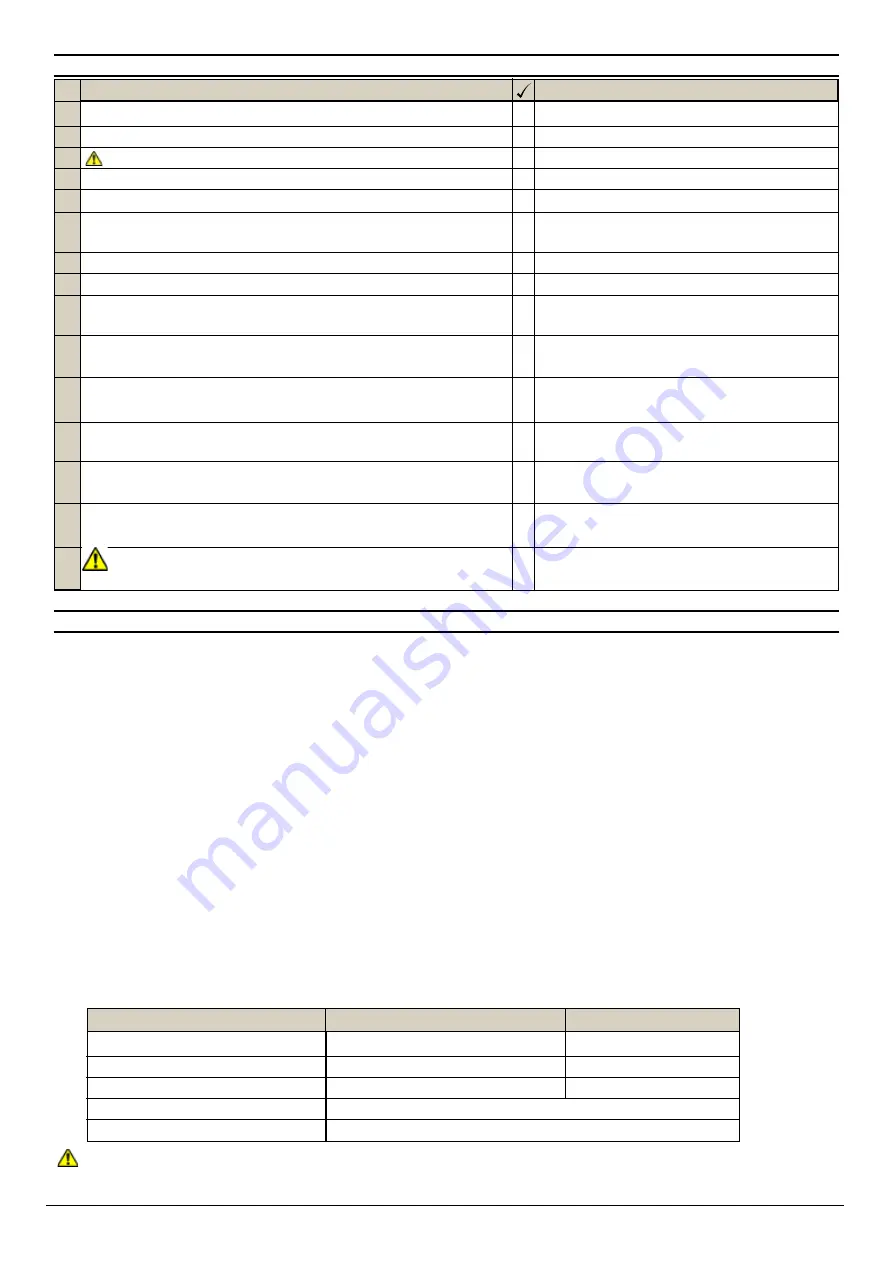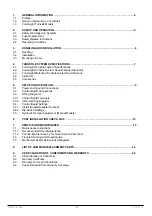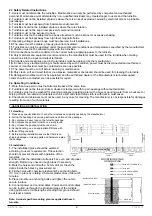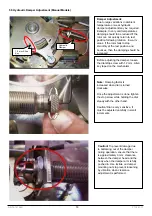
DD-75-181 R(2)
Y.T.13.07.17
15
1
No
Item to Check
Remarks
2
3
4
5
6
7
8
9
10
11
12
13
14
15
Adjust damper if rotor is bouncing or too stiff.
Standard fail-safe configuration. Fail-locked
option is available.
Unit is properly grounded.
7. SERVICE AND MAINTENANCE
7.1 Maintenance Instructions
7.1.1 Recommended User Maintenance
• Periodically wipe the turnstile exterior with a clean, damp and soft cloth to keep it free of dust.
• Inspect external mounting screws, panels, arms etc. once every three months or as required to ensure that there are
no loose, worn out or damaged items. If there are loose or damaged items contact your authorized dealer or Ozak.
• Check that the turnstile is firmly anchored on the surface.( No loose or damaged anchoring).
• Check that all mechanical movement is smooth and quiet with no unusual noise, rattling etc.
• Inspect electrical cables and connections for any damage, water contamination, loose connections or wear. Contact
your authorized dealer or the manufacturer if any problem is detected.
• Ozak uses only the finest quality certificated steel obtained from reputable suppliers for maximum corrosion
resistance and strength. During our manufacturing process we take all the required steps to ensure that the finished
products have excellent corrosion resistance. Depending on the environmental conditions, there may be staining issues
on some turnstile surfaces in outdoor installations if regular cleaning and maintenance is not performed. On 304 and
higher grade steel surfaces, these stains are not actual rust, but only accumulation of airborne particles sticking on the
surfaces. These type of stains can be cleaned off and prevented by periodic maintenance recommended below.
• Cleaning the turnstile surfaces by wiping with a clean, dust and grit free absorbent cloth is effective in most cases.
Harsh abrasives should never be used on polished metal surfaces. Commercially available appropriate metal polishing
compounds can be used for removal of tougher stains. The recommended frequency of cleaning depends on the local
environment as explained in table below.
Do not wash the turnstile with pressurized water.
There are no user serviceable items inside the turnstile. Do not attempt to do repair work such as lubrication, part
replacement or adjustments inside the unit. All such work must be performed by qualified technical personnel only!
6. POST INSTALLATION CHECKLIST
Environment
Type 304
Type 316
Seafront
Frequently as required
Monthly
Coastal (Within 5 km of the coast) Frequently as required
6-12 months
Industrial and urban
3-6 months
6-12 months
Suburban Rural
Annually or as required by experience
Internal
As required to maintain appearance
Installation surface is flat, even and sufficiently strong
All wiring is routed and connected properly
All AC power lines are properly insulated and grounded
Turnstile is positioned and mounted correctly and firmly
All anchoring bolts are secured in place with chemical plaster.
All anchoring hardware tightened properly (no loose nuts/bolts etc,
turnstile is firmly mounted on the surface).
All arms, covers, panels, readers etc. are mounted correctly
No physical damage or irregularities (dents, scratches, broken items etc.)
When powered up all indicators are normal, solenoids locked, buzzer
initial beep is heard, rotor/panel in standby position)
Turnstile allows passage in A direction when contact is given on Input
A and Gnd. Opposite side indicator turns red until rotation complete.
Turnstile allows passage in B direction when contact is given on Input
B and Gnd. Opposite side indicator turns red until rotation complete.
Turnstile rotor (or panel) operates quietly, smoothly and returns to
center (standby) position without bouncing.
In Emg (emergency) mode turnstile allows free passage in both
directions while buzzer is heard.
When power is cut off, turnstile allows free passage in both directions
by pushing
AC potential between turnstile ground and neutral is less than 0.5V.
Good continuity (0 Ohm) between chassis and ground.























